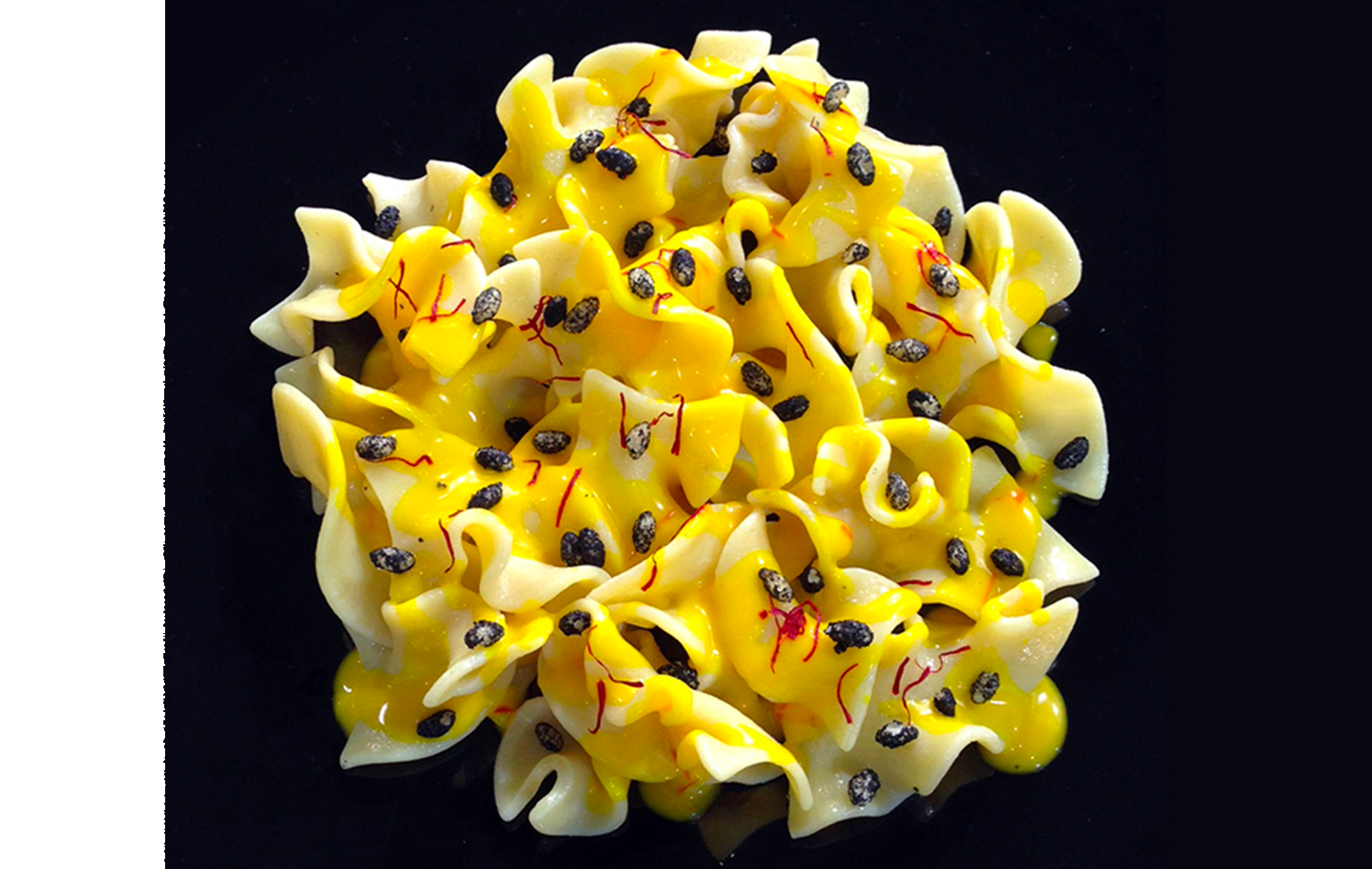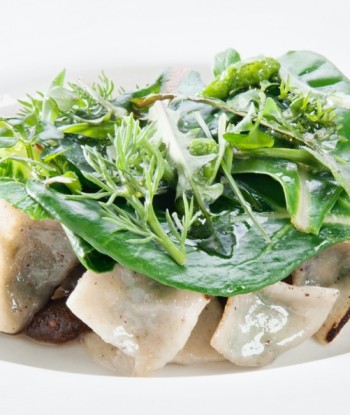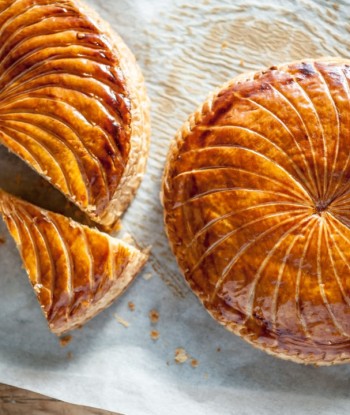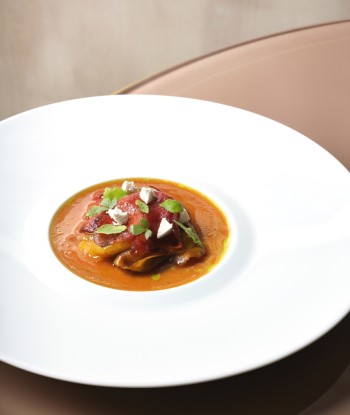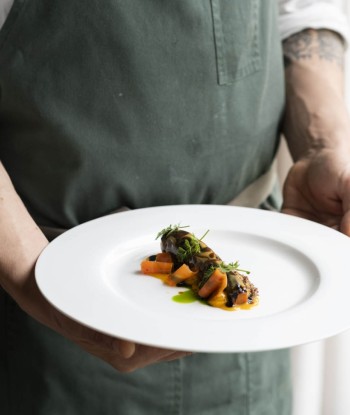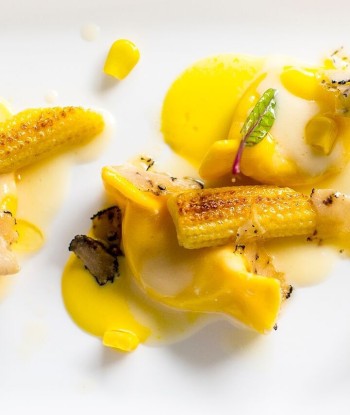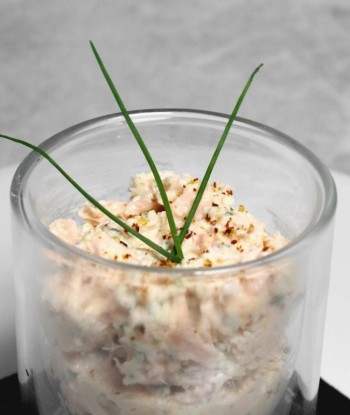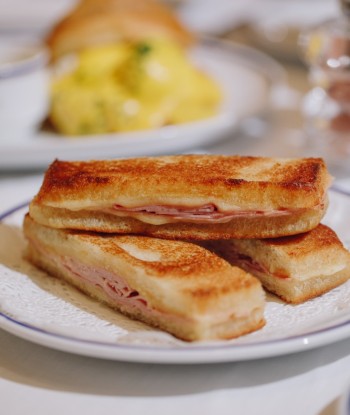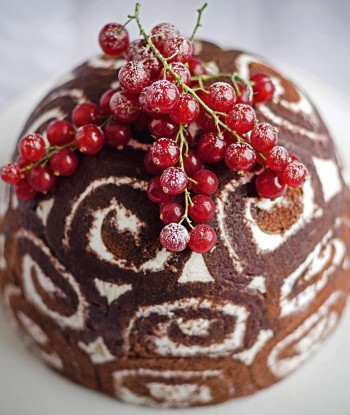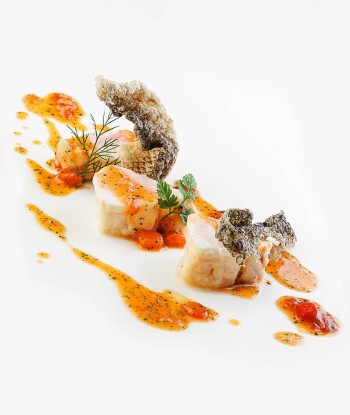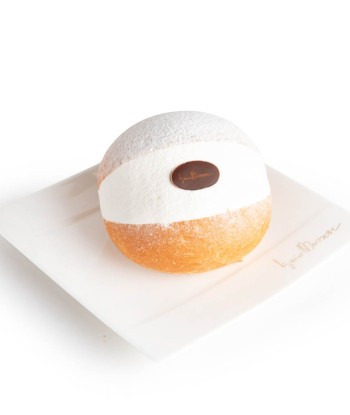Recipe by Gualtiero Marchesi: Marchesi's Saffron Trucioli
Ingredients for 4 people
320 grams trucioli
80 grams butter
20 grams of black crunchy rice
1 gram of saffron threads
Lemon drops
Fine salt
Method
Infuse the saffron in a small amount of hot water for 20 minutes. Melt the butter in a saucepan over low heat to avoid splattering. Add a few drops of lemon, adjust the salt, and emulsify with the saffron-infused water. Keep warm. Cook the pasta shavings in plenty of salted water until done. Drain, toss with the saffron sauce, plate preferably on a black dish, sprinkle with black crunchy rice grains, and serve.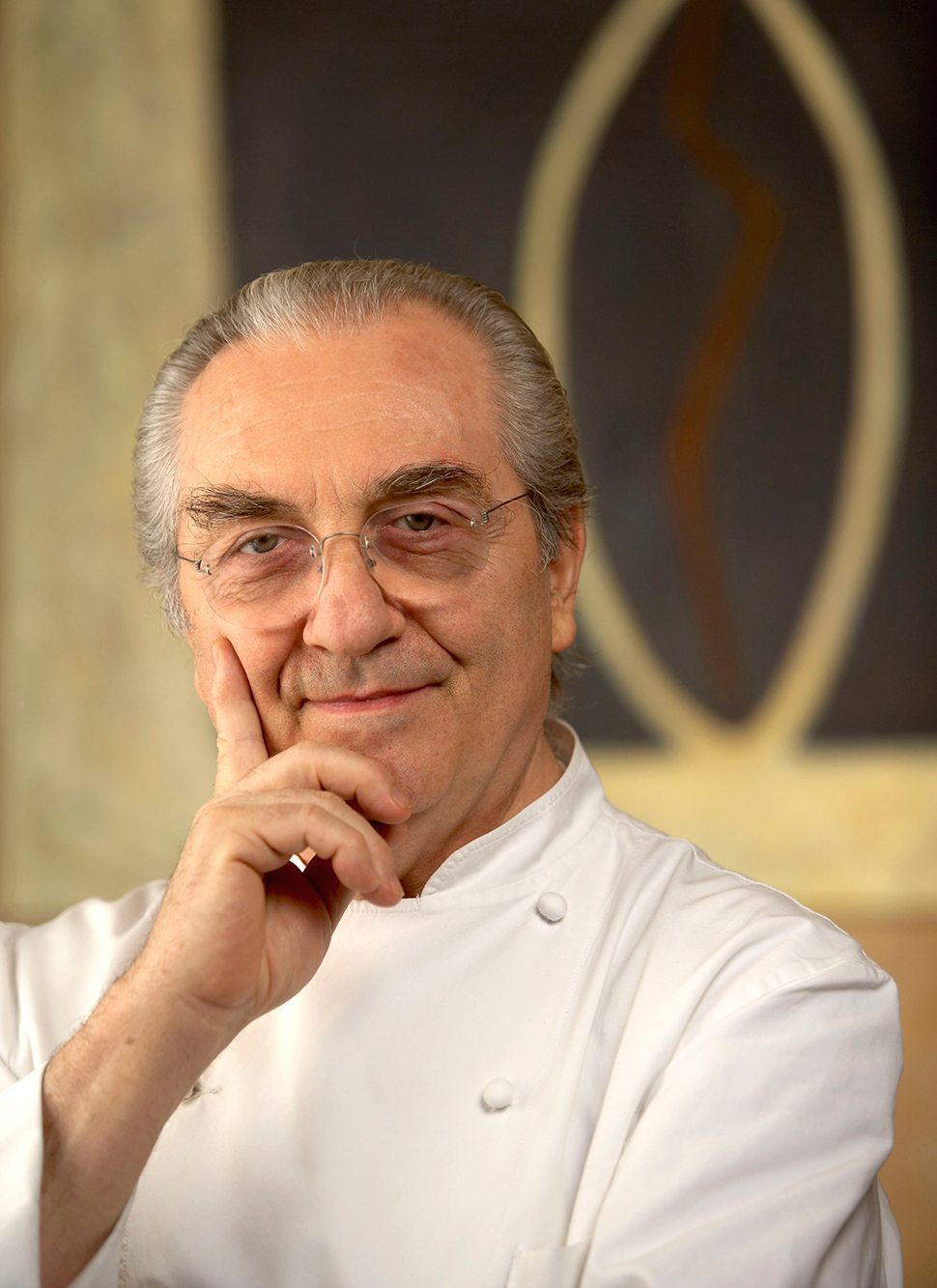
"A thin sheet of wood raised by the plane, which curls," so says the dictionary, describing the wood shaving, now transformed into pasta thanks to an old bronze die at least fifty years old and the imagination of Gualtiero Marchesi. The maestro was inspired by his friend Maurizio Riva, a great wood entrepreneur, and entrusted the execution to Carla Latini, who thus celebrates her new venture called Pasta 600.27.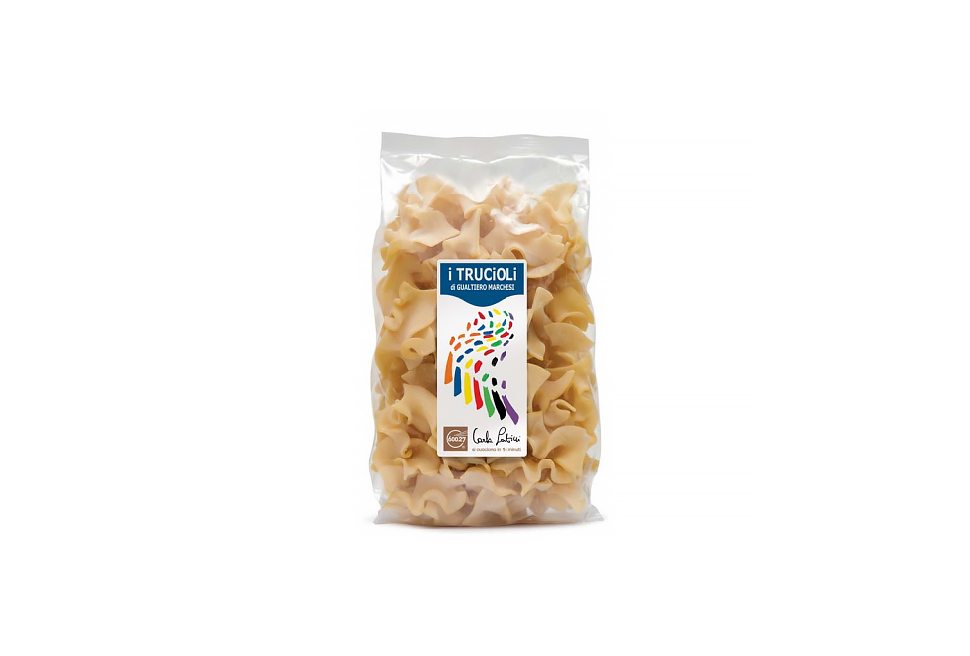 The wood shaving is nothing more than an unfinished shell, an open spiral, and if you can also taste it, it transforms from residue, waste, from what you remove into something else: an enticing sculpture reminiscent of a flower corolla or a desert rose. Marchesi designs a cuisine of the essential or rather of maximum purity, always shifting attention from appearance to the substance of things. Just think of "Carn’è pesce," the open raviolo, the cutlet of the year 2000, or the spaghetti, caviar, and chive salad. So far, the idea of the wood shaving is the most explosive because it reminds us to look down, among the scraps, and pick up a fragment of meaning, reconstructing a bit of beauty at hand.
The wood shaving is nothing more than an unfinished shell, an open spiral, and if you can also taste it, it transforms from residue, waste, from what you remove into something else: an enticing sculpture reminiscent of a flower corolla or a desert rose. Marchesi designs a cuisine of the essential or rather of maximum purity, always shifting attention from appearance to the substance of things. Just think of "Carn’è pesce," the open raviolo, the cutlet of the year 2000, or the spaghetti, caviar, and chive salad. So far, the idea of the wood shaving is the most explosive because it reminds us to look down, among the scraps, and pick up a fragment of meaning, reconstructing a bit of beauty at hand.
The wood shaving is the image of the carpenter's effort, perhaps even his most alchemical, mocking, and modern work, that of Pinocchio, endowed with speech and ready to face the world. In any case, Marchesi wanted it to be as white and almost airy as possible. "He asked me not to make it rough -" explains Carla Latini, "and to please him, I explained that we could work on the softness of the pasta and the color without giving up bronze dies and using ancient varieties of Italian durum wheat semolina.
"In this way," emphasizes Gualtiero Marchesi, "I can play better with contrast, important both for the composition and the digestibility of a dish. To the whiteness and smoothness of the wood shaving, I have added the black of crunchy and peppery rice grains, made by Gli Aironi Risi&CO, dressing it Milanese style, with a sauce based on butter and saffron. The new dish, white, black, yellow, and red, elegantly brings together wheat and rice, the two basic foods of humanity, and is called: 'Marchesi Wood Shavings with Saffron.'"
"The wood shavings remain al dente," adds Latini, "holding the cooking well thanks to the dimensions of the 'cartella' that determines the thickness of the pasta inside the die." A homogeneous pasta that cooks in 14 minutes. The label, which reproduces the traditional seven-colored strokes of Marchesi's cuisine, with a shooting star effect, was born from an idea by Libero Gozzini.
